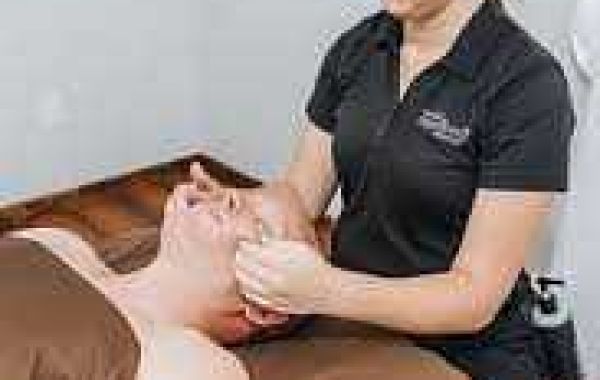Introduction to Massage Therapy
In today's fast-paced world, massage therapy is often viewed as a luxurious escape reserved for special occasions. However, this ancient practice offers far more than a temporary reprieve from daily stress. Massage therapy encompasses a range of techniques designed to enhance overall well-being, providing relief from pain, aiding in injury prevention, and promoting faster recovery. It has the potential to significantly improve the quality of life for those who incorporate it regularly into their health and wellness routines.
The Science Behind Massage Therapy
Understanding the Basics
Massage therapy involves the manipulation of the body's soft tissues, including muscles, tendons, ligaments, and connective tissues. By applying varying degrees of pressure and movement, massage therapists can address specific areas of discomfort or tension. The primary goal is to alleviate pain, reduce stress, and promote relaxation, but the benefits extend much further.
Physiological Benefits
Improved Circulation
One of the immediate effects of massage therapy is improved blood circulation. Enhanced circulation helps deliver oxygen and essential nutrients to the muscles and tissues, promoting faster healing and recovery. This is particularly beneficial for individuals recovering from injuries or those with chronic pain conditions.
Reduced Muscle Tension
Muscle tension and tightness are common issues that can lead to discomfort and pain. Massage therapy helps to release this tension by targeting specific muscle groups, promoting relaxation and flexibility. This can lead to improved posture and reduced risk of injury.
Psychological Benefits
Stress Reduction
Stress is a pervasive issue that affects mental and physical health. Regular massage therapy sessions can significantly reduce stress levels by lowering cortisol (the stress hormone) and increasing the production of serotonin and dopamine, neurotransmitters associated with happiness and well-being.
Enhanced Mental Clarity
The relaxation achieved through massage therapy can also enhance mental clarity and focus. By reducing stress and promoting a state of calm, individuals often find it easier to concentrate and make decisions.
Types of Massage Therapy
Swedish Massage
Swedish massage is one of the most popular and well-known forms of massage therapy. It involves long, flowing strokes, kneading, and circular movements on the superficial layers of muscles. This type of massage is ideal for promoting relaxation, improving circulation, and easing muscle tension.
Deep Tissue Massage
Deep tissue massage targets the deeper layers of muscle and connective tissue. It is particularly effective for individuals with chronic pain or muscle injuries. This technique uses slower, more forceful strokes to reach deeper layers of muscle and fascia, helping to release chronic tension.
Sports Massage
Athletes often turn to sports massage to enhance performance and prevent injuries. This type of massage therapy focuses on specific muscle groups used in a particular sport. It combines various techniques to improve flexibility, reduce fatigue, and enhance endurance.
Trigger Point Therapy
Trigger point therapy involves applying pressure to specific points in the muscles that are responsible for pain and discomfort. These points, known as trigger points, can cause referred pain in other areas of the body. By releasing these points, trigger point therapy can alleviate pain and improve range of motion.
Prenatal Massage
Prenatal massage is tailored to the needs of pregnant women. It focuses on reducing the discomfort and pain associated with pregnancy, such as lower back pain, swelling, and stress. This type of massage therapy can promote relaxation and improve overall well-being during pregnancy.
The Role of Massage Therapy in Injury Prevention and Recovery
Injury Prevention
Increased Flexibility
Regular massage therapy sessions can improve flexibility by reducing muscle tightness and promoting relaxation. This increased flexibility can help prevent injuries, particularly those related to overuse or strain.
Enhanced Athletic Performance
For athletes, massage therapy can play a crucial role in enhancing performance. By reducing muscle fatigue and improving circulation, athletes can experience quicker recovery times and better overall performance.
Injury Recovery
Accelerated Healing
Massage therapy can accelerate the healing process by improving circulation and reducing inflammation. This is particularly beneficial for individuals recovering from surgery or injuries.
Pain Management
Chronic pain conditions, such as fibromyalgia or arthritis, can be effectively managed with massage therapy. By targeting specific areas of pain and discomfort, massage can provide significant relief and improve the quality of life for those living with chronic pain.
The Holistic Approach of Massage Therapy
Mind-Body Connection
Massage therapy takes a holistic approach to health and wellness, recognizing the interconnectedness of the mind and body. By addressing both physical and psychological aspects, massage therapy can promote overall well-being and balance.
Complementary to Other Treatments
Massage therapy can be a valuable complement to other treatments and therapies. Whether combined with physical therapy, chiropractic care, or conventional medical treatments, massage can enhance the effectiveness of these therapies and contribute to a comprehensive approach to health and wellness.
Incorporating Massage Therapy into Your Routine
Finding the Right Therapist
Choosing the right massage therapist is crucial for reaping the benefits of massage therapy. Look for a licensed and experienced therapist who specializes in the type of massage that suits your needs. Personal recommendations and reviews can also help you find a reputable therapist.
Setting Realistic Goals
Before starting massage therapy, it's important to set realistic goals. Whether you're seeking relief from chronic pain, looking to reduce stress, or aiming to improve athletic performance, clear goals can help you and your therapist develop a personalized treatment plan.
Regular Sessions for Maximum Benefits
To experience the full range of benefits, consider incorporating regular massage therapy sessions into your routine. Consistency is key, as regular sessions can help maintain the improvements achieved through initial treatments.
The Future of Massage Therapy
Technological Advancements
As technology continues to advance, so does the field of massage therapy. Innovations such as massage chairs, robotic massage devices, and virtual reality relaxation techniques are becoming more popular. These advancements make massage therapy more accessible and can enhance the overall experience.
Increasing Recognition in Healthcare
The healthcare industry is increasingly recognizing the benefits of massage therapy. More healthcare providers are incorporating massage into treatment plans, particularly for pain management and mental health support. This growing recognition is helping to elevate the status of massage therapy as a legitimate and valuable healthcare practice.
Conclusion
Massage therapy is far more than a luxury; it is a powerful tool for improving overall health and well-being. From reducing stress and alleviating pain to preventing injuries and enhancing athletic performance, the benefits of regular massage therapy are extensive. By incorporating this ancient practice into modern wellness routines, individuals can experience significant improvements in their quality of life. Whether you are seeking relaxation, recovery, or improved physical performance, massage therapy offers a holistic approach that can transform your health and well-being.








